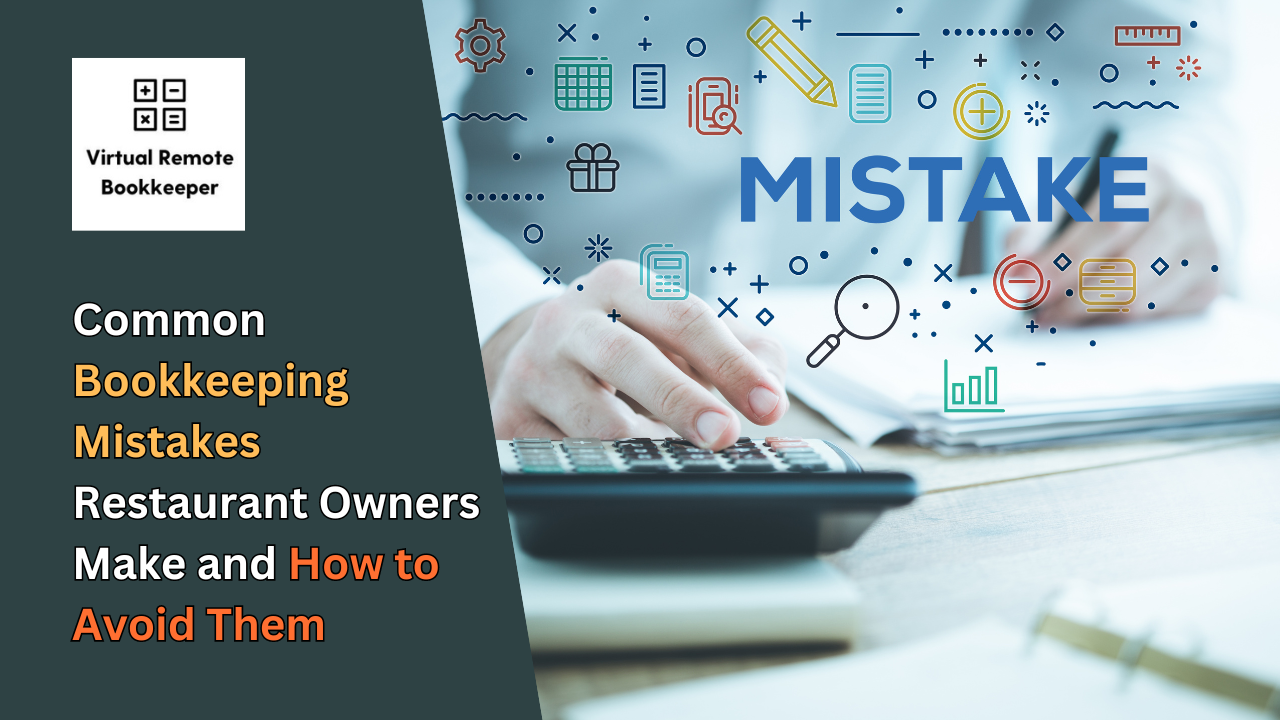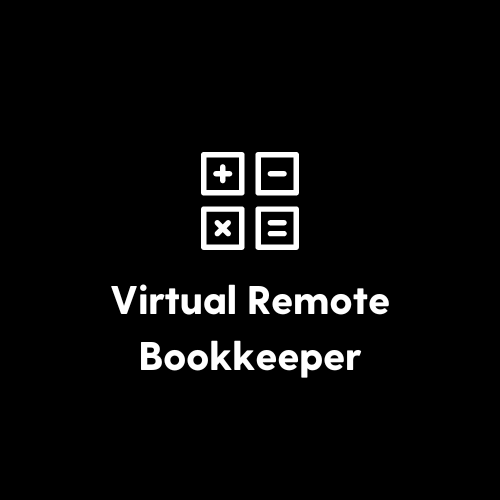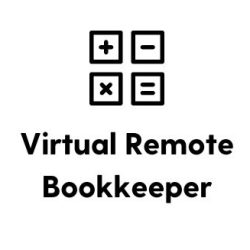
Managing a restaurant is no easy feat. With daily operations, customer satisfaction, and kitchen logistics, it’s easy for restaurant owners to overlook an essential aspect of running a successful business: bookkeeping. Poor bookkeeping can lead to significant financial troubles, tax issues, and even business closure. Here are some common bookkeeping mistakes restaurant owners make and how to avoid them.
1. Not Separating Personal and Business Expenses
One of the most common mistakes restaurant owners make is mingling personal and business expenses. This often happens in smaller restaurants or startups where owners use a personal credit card or bank account for business transactions.
How to Avoid: Open a separate business bank account and get a dedicated business credit card. Ensure all restaurant-related expenses, such as purchasing ingredients, paying staff, and utility bills, come from your business account.
2. Poor Cash Flow Management
Restaurants often deal with daily cash transactions, which makes cash flow management tricky. Failing to track cash flow can result in cash shortages or difficulties paying suppliers and employees on time.
How to Avoid: Implement a daily cash flow tracking system. You can use accounting software to track incoming and outgoing cash in real-time, allowing you to address any issues immediately.
3. Failing to Reconcile Accounts Regularly
Many restaurant owners overlook the importance of regularly reconciling their accounts. This leads to discrepancies in financial records, which can create serious issues when it’s time to pay taxes or manage payroll.
How to Avoid: Schedule a time each week or month to reconcile your accounts. Compare your restaurant’s bank statements to your bookkeeping records to ensure all transactions match. Using automated software can make this process quicker and more accurate.
4. Inconsistent Tracking of Inventory
Inventory is a huge part of restaurant expenses, and inconsistent tracking can lead to over-purchasing, waste, or shortages, all of which impact profits.
How to Avoid: Establish a consistent inventory tracking system. Use inventory management software or hire a bookkeeper to track stock levels and monitor purchases. This helps you know when to reorder items and prevents wastage from expired stock.

5. Ignoring Tax Deductions
Restaurants have several tax deductions available, including equipment depreciation, food costs, and employee wages. Many restaurant owners fail to take advantage of these deductions due to poor bookkeeping practices.
How to Avoid: Work with a professional bookkeeper or accountant who is familiar with tax regulations specific to the restaurant industry. They can help you identify tax-deductible expenses and ensure you’re maximizing your tax savings.
6. Not Recording Small Expenses
Small purchases, like a quick run to the store for supplies or tipping delivery drivers, often go unrecorded. Over time, these small expenses add up, skewing your financial reports and making it difficult to track actual profits and losses.
How to Avoid: Record every expense, no matter how small. Using expense tracking software or even a simple mobile app can make this process easier and more efficient.
7. Mismanaging Payroll
Payroll can be complicated in the restaurant industry, especially with tips, hourly wages, and varying shifts. Mismanaging payroll not only causes employee dissatisfaction but also leads to penalties for non-compliance with labor laws.
How to Avoid: Invest in payroll management software tailored for restaurants. Alternatively, outsource your payroll to a bookkeeping service to ensure it is handled correctly, and employees are paid on time.
8. Neglecting Financial Reports
Restaurant owners who don’t generate or review financial reports regularly often have little visibility into their business’s financial health. Not understanding your profit margins, expenses, and cash flow can lead to poor decision-making.
How to Avoid: Regularly review key financial reports like profit and loss statements, cash flow statements, and balance sheets. These reports will give you a clear understanding of your restaurant’s financial health and help guide important business decisions.
9. DIY Bookkeeping Without Proper Knowledge
Many restaurant owners attempt to handle their bookkeeping themselves to save money. However, without proper accounting knowledge, this can lead to costly errors and missed tax deductions.
How to Avoid: If you’re not familiar with accounting or bookkeeping, consider hiring a professional bookkeeper or accountant. A professional will not only save you time but also help ensure your books are accurate and up-to-date.
Conclusion
Effective bookkeeping is the backbone of any successful restaurant. By avoiding these common mistakes and implementing sound bookkeeping practices, you’ll have a clearer picture of your restaurant’s financial health, ensuring long-term success. If managing your restaurant’s finances feels overwhelming, consider outsourcing to a professional bookkeeping service like Virtual Remote Bookkeeper, where experts can handle your books while you focus on growing your business.


